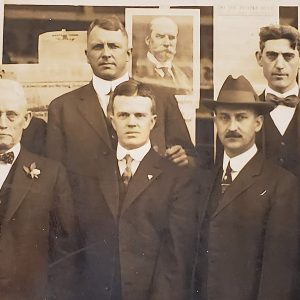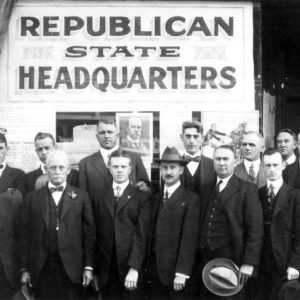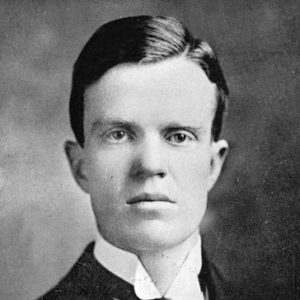calsfoundation@cals.org
Wallace Townsend (1882–1979)
Wallace Townsend was both a prominent lawyer and a prominent leader in the Arkansas Republican Party. Townsend was a leading member of the “lily-white” faction that helped alienate African Americans from the Grand Old Party (GOP).
Wallace Townsend was born on August 20, 1882, in DeWitt, Iowa, the son of John R. Townsend and Italia James; he had a brother named A. E. “Jack” Townsend, who was the assistant postmaster in Little Rock (Pulaski County) for several decades. Townsend moved to Little Rock with his family in November 1894 and received his BA from Hendrix College in 1902, after which he entered the field of public education. His most noteworthy service as an educator was his tenure as principal of Little Rock High School from 1906 to 1910, during which time the school earned its first accreditation.
In 1906, Townsend was awarded an LLB from what is now the University of Arkansas at Little Rock William H. Bowen School of Law, and he began his career in law in 1910. His law practice was chiefly concerned with revenue bonds. Townsend began his participation in partisan politics as the Republican Party nominee for state superintendent of public instruction in 1910. This race and his subsequent service as the state party’s legal counsel brought him into the party’s ruling circles, where he supported the lily-white faction. In 1914, the lily-white faction, under the leadership of Townsend and Pulaski County GOP chairman Augustus C. Remmel, was swept into power in the Republican Party.
The lily-whites believed that the reason for the weakness of the Arkansas GOP was that the majority of African Americans were affiliated with it, thus alienating racist Southerners from the party. Their prescription for Southern Republican victories, then, was for African Americans to be driven out of the GOP. Eventually, the lily-white movement gained major support from the Republican establishment in Washington DC. The once strong bonds between the black electorate and the state party were broken, thus contributing in a major way to the eventual black defection to the Democratic Party.
Following the 1914 lily-white victory, Townsend rose higher within the state party to become the Republican nominee for governor in both 1916 and 1920. During the lily-white ascendancy, however, the state GOP failed to make electoral gains. Eventually, by 1928, African Americans and the Arkansas GOP reconciled.
Townsend attended every Republican National Convention from 1912 to 1960. From 1916 to 1962, he served on the state party’s executive committee. He was the state party’s vice chairman from 1920 to 1928 and the Republican national committeeman from Arkansas from 1928 to 1961. Townsend received patronage rewards for his party service, including the office of registrar of the U.S. land office at Little Rock from 1922 to 1924 and the position of United States attorney for the Eastern District of Arkansas from 1930 to 1934.Townsend also served as a leader within a number of private organizations, such as the Little Rock Chamber of Commerce and the Little Rock Boys Club.
In 1914, he married Bess Voss, with whom he had two daughters. She died in 1958, and he married Floy Smith Plunkett in 1962.
Townsend retired from his law practice at the age of ninety-two in 1974. He died on January 7, 1979.
For additional information:
“‘Mr. Republican’ Dies at Age 96.” Arkansas Gazette, January 8, 1979, pp. 1A, 3A.
Obituary of Wallace Townsend. Arkansas Democrat, January 8, 1979, p. 7B.
Wallace Townsend Papers. Center for Arkansas History and Culture. University of Arkansas at Little Rock, Little Rock, Arkansas.
Charles Rector
Woodstock, Illinois
 Post-Reconstruction through the Gilded Age, 1875 through 1900
Post-Reconstruction through the Gilded Age, 1875 through 1900 Lily White Republicans
Lily White Republicans  Republican Party Leaders
Republican Party Leaders  Wallace Townsend
Wallace Townsend 




Comments
No comments on this entry yet.